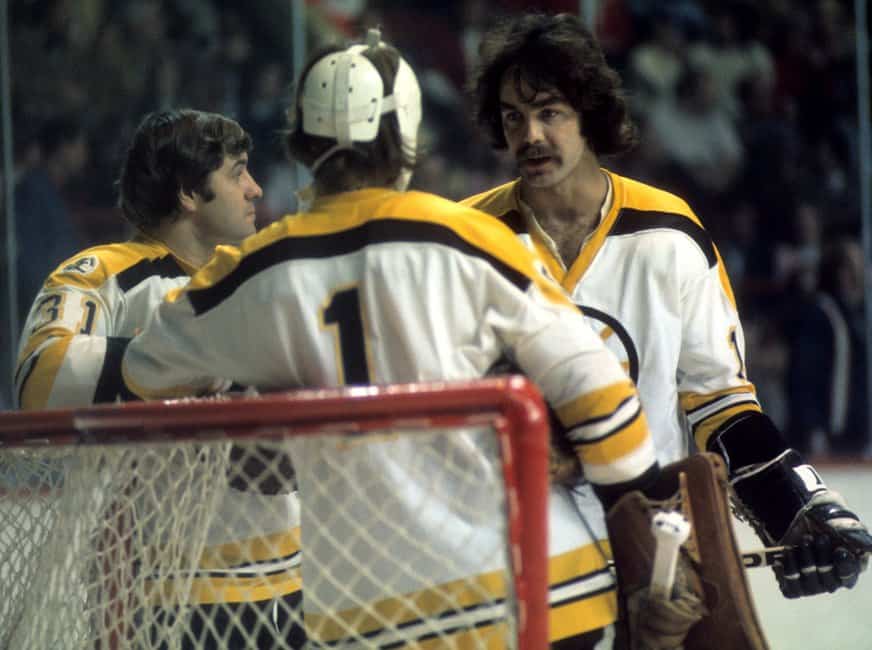

Derek "Turk" Sanderson, born on June 16, 1946, in Niagara Falls, Ontario, is a name synonymous with the Boston Bruins and a captivating, yet cautionary, tale of a life lived in the fast lane. Known for his blend of grit, skill, and charisma, Sanderson captured the hearts of Boston fans in the late 1960s and early 1970s, becoming a key figure in the Bruins' two Stanley Cup victories in 1970 and 1972.
Sanderson's journey to hockey stardom began with a promising junior career, where he honed his skills with the Niagara Falls Flyers. He turned professional in 1965, joining the Boston Bruins organization. After brief stints with the big club, he secured a permanent roster spot in the 1967-68 season. That year, the 21-year-old Sanderson exploded onto the scene, scoring 24 goals and 49 points in 71 games, while also racking up 98 penalty minutes. His performance earned him the Calder Memorial Trophy as the NHL's Rookie of the Year, following teammate Bobby Orr, who had claimed the honor the previous year.
"Turk" quickly became a fan favorite in Boston. His menacing sweep check, smothering forechecks, and tenacity in the corners became his trademarks. Sanderson, along with Ed Westfall, formed one of the most accomplished penalty-killing duos in the league. He was also known for his willingness to fight, adding to his tough-guy image. Sanderson played 13 seasons in the NHL, amassing 202 goals, 250 assists, and 911 penalty minutes in 598 games. He also boasted a plus-minus rating of +141. In the 1970 Stanley Cup Finals, Sanderson set up Bobby Orr's iconic overtime goal, a moment forever etched in hockey history. The Bruins won another Stanley Cup in 1972, further solidifying Sanderson's place in Boston hockey lore.
In 1972, Sanderson shocked the hockey world by signing with the Philadelphia Blazers of the World Hockey Association (WHA) for a record $2.65 million, making him the highest-paid athlete in the world at the time. However, his time in Philadelphia was short-lived and marred by injuries. He later returned to the NHL but never regained the same level of success he had achieved in Boston. He played for the New York Rangers, St. Louis Blues, Vancouver Canucks, and Pittsburgh Penguins.
Sanderson's on-ice success was often overshadowed by his off-ice lifestyle. He embraced the life of a celebrity, driving a Rolls-Royce, owning nightclubs with Joe Namath, and indulging in a lavish lifestyle. However, his partying lifestyle and struggles with alcohol and drugs eventually caught up with him. After his career ended, he found himself battling addiction and financial difficulties.
In late 1978, Bobby Orr stepped in to help his former teammate, checking Sanderson into a hospital where he was diagnosed with alcoholism and drug addiction. Sanderson began a long road to recovery, and with the support of friends and the Bruins organization, he eventually achieved sobriety. He transitioned into a career as a sports broadcaster, spending ten years with New England Sports Network (NESN). Later, he became a financial advisor, helping athletes manage their money and avoid the pitfalls he had experienced.
Derek Sanderson's life is a story of triumph and tragedy, of hockey glory and personal struggles. He remains a beloved figure in Boston, remembered for his contributions to the Bruins' success and his resilience in overcoming adversity.